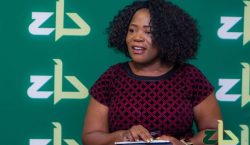

Ex-Audi boss Rupert Stadler has become the first top executive to stand trial over Germany’s “dieselgate” scandal, which rocked the car industry in 2015.
Mr Stadler appeared before a Munich court on Wednesday on charges including fraud, which he denies.
Audi’s owner Volkswagen has admitted to installing software that was capable of cheating emissions tests in 11 million diesel vehicles worldwide.
Not a single top executive has been convicted over the scandal in Germany.
However, two VW employees have received jail terms in the US.
Mr Stadler is accused of knowingly selling cars which had manipulated engine software and did not comply with environmental standards.
When US regulators uncovered the scam in 2015, VW initially claimed it was the work of a handful of engineers, and that no senior managers were involved.
But testimony from employees led prosecutors to remand Mr Stadler in custody for four months in 2018.
Also in the dock are ex-Audi and Porsche manager Wolfgang Hatz and two former engineers, who also deny accusations of fraud.
The accused face charges covering more than 434,000 VW, Audi and Porsche vehicles sold in Europe and the US. If found guilty, they face up to 10 years in jail, although a ruling isn’t expected until December 2022.
Mr Stadler is not the only high-profile executive facing judgement. Former VW group boss Martin Winterkorn will also face trial on charges of fraud and stock market manipulation.
VW’s current boss, Herbert Diess, and board chair Hans Dieter Poetsch faced similar allegations but those proceedings were dropped after VW agreed to a €9m settlement.
The “dieselgate” scandal has already cost VW more than €30bn in fines, legal costs and compensation to car owners, mainly in the US.
Rivals Daimler and Fiat Chrysler have since also faced accusations of emissions rigging.
In April, VW settled Germany’s biggest lawsuit – agreeing to pay around €750m to 235,000 customers with affected cars.
It is now trying settle with a further 60,000 claimants who want the carmaker to buy back their diesel vehicles. – bbc.com
Sorry. No data so far.

